Dark Heart Read online
About Dark Heart
Lawyer Mike Ioannou is dead after a hit and run in Thailand. A home invasion threatens the life of medico Richard Dunlop. In Johannesburg, a car jacker nearly kills photo journalist Liesl Nel.
Unrelated incidents in a dangerous world, or something else entirely? Australian war crimes prosecutor Carmel Shang joins the dots. All three victims are linked by a photograph that was clutched in the hand of a dying man nearly twenty years ago. The picture holds a clue to how madness gripped a country resulting in a million people losing their lives.
Carmel has to not only confront the perpetrators of the unprecedented slaughter, but Richard and Liesl, the two people she never wanted to see again. Richard was the UN military doctor she was in love with in Rwanda, and Liesl was the woman who came between them. Now they are thrown together again, desperately trying to find out why the photograph is making them the targets of an assassin.
In a quest that takes them from South Africa’s Kruger National Park to Zambia, Australia, and back to Rwanda, where it all began, they find that amidst the indestructible majesty and beauty of Africa, yesterday’s merchants of death are dealing in a new currency – illegal traditional medicine and the barbaric live trade in endangered African wildlife; businesses they’re prepared to kill for to protect.
CONTENTS
Cover
About Dark Heart
Dedication
Map
Glossary
Prologue
Chapter One
Chapter Two
Chapter Three
Chapter Four
Chapter Five
Chapter Six
Chapter Seven
Chapter Eight
Chapter Nine
Chapter Ten
Chapter Eleven
Chapter Twelve
Chapter Thirteen
Chapter Fourteen
Chapter Fifteen
Chapter Sixteen
Chapter Seventeen
Chapter Eighteen
Chapter Nineteen
Chapter Twenty
Chapter Twenty-one
Chapter Twenty-two
Chapter Twenty-three
Chapter Twenty-four
Chapter Twenty-five
Chapter Twenty-six
Chapter Twenty-seven
Chapter Twenty-eight
Chapter Twenty-nine
Chapter Thirty
Chapter Thirty-one
Chapter Thirty-two
Chapter Thirty-three
Epilogue
Acknowledgements
About Tony Park
Also by Tony Park
Copyright page
For Nicola
GLOSSARY
Akazu: literally, ‘little house’, this small circle of Hutu relatives and friends of President Juvenal Habyarimana and his wife, Agathe, were opposed to power sharing with the Tutsi, and contributed to the organisation of the Rwandan genocide.
bakkie: Afrikaans term for pickup or utility vehicle.
DRC: Democratic Republic of Congo; formerly Zaire.
FAR: Forces Armées Rwandaises; the Hutu-dominated Rwandan national army, in existence until 1994 when the Rwandan Patriotic Army and Rwandan Patriotic Front took control of the country.
gacaca: literally, ‘justice on the grass’; a community-based court system introduced to deal with the high numbers of people accused of genocide.
génocidaires: those accused of perpetrating the 1994 Rwandan genocide of Tutsis and moderate Hutus between 6 April and mid July, during which up to a million people were killed.
Habyarimana, Juvenal: Hutu president of Rwanda from 1973 until his death in 1994, when his Dassault Falcon 50 aircraft was shot down by a surface-to-air missile. Also on board and killed was the president of Burundi, Cyprien Ntaryamira.
Hutu: central African ethnic group existing in Rwanda, Burundi and the Democratic Republic of Congo. The majority tribe in Rwanda (with the others being the Tutsi and the Twa), the Hutu were disenfranchised under Belgian colonial rule, which favoured the Tutsi minority. After 1959, however, the balance of power changed in favour of the Hutu, until after the genocide.
Hutu Power: an extremist anti-Tutsi ideology which spawned several political parties in the lead-up to the 1994 genocide with the aim of excluding or eliminating Tutsis from Rwanda.
ICTR: International Criminal Tribunal Rwanda. UN body formed in November 1994 to investigate and prosecute those accused of genocide and other violations of human rights in Rwanda.
Interahamwe: literally, ‘those who stand together’, or fight together, this government-backed Hutu paramilitary group was responsible for carrying out the genocide against Tutsis and moderate Hutus in Rwanda.
Kibeho: Small town in southern Rwanda which prior to the genocide attained fame as the site of reported visions of the Virgin Mary and Jesus Christ. It was also the site of the largest post-genocide Hutu refugee camp where génocidaires and innocent Hutus fearing RPA reprisals sought shelter.
muti: common southern African term for traditional medicine made from plant matter and animal and (in some cases) human body parts.
RPA: Rwandan Patriotic Army. The armed wing of the Tutsi-dominated Rwandan Patriotic Front. Made up of exiled Tutsis, the RPA, led by Paul Kagame, took control of Rwanda following the 1994 genocide.
RPF: Rwandan Patriot Front. Political party formed in 1987 by Tutsis living in exile from Rwanda in Uganda. The RPF took power in Rwanda in 1994, won a majority in the 2003 elections and at the time of writing (2012) the RPF was still the ruling party in Rwanda.
Tutsi: ethnic grouping in Rwanda, Burundi and Democratic Republic of Congo; the second largest grouping in Rwanda (with Hutus in the majority and Twa in the minority). Initially favoured over the Hutu by the Belgian colonial regime, the Tutsi faced reprisal killings and persecution following the 1959 transition to majority rule. Many fled the country for neighbouring Uganda. The 1994 genocide was aimed at eliminating the Tutsi in Rwanda.
UNAMIR: United Nations Assistance Mission For Rwanda. UN peacekeeping force first established in 1993, prior to the genocide, to enforce the terms of the Arusha accords which would have allowed exiled Tutsis safe return to Rwanda.
PROLOGUE
KOH SAMUI, THAILAND, DECEMBER 2011
The girl looked back over her shoulder and winked at him, then leaned across the pool table, one short but slender leg raised, and lined up the white and the eight balls. A sunburnt Swede on the other side of the green felt, old enough to be her father, leered at her sloppily.
The balls kissed and the black slammed into the corner pocket. The Swede shook his head, laid down his cue and shook her hand. The girl looked back at Mike Ioannou and winked again.
Mike looked at his watch. It was one in the morning. He was alone and drunk. He drained his lukewarm half-litre glass of Singha beer and then groaned as the girl, who had just clinched her fifth straight game of pool, sashayed towards him with a full beer. She’d been working on him all night, in between matches.
‘Kop kuhn, I think,’ he said to her, and reluctantly took a sip. At least this one was cold. Why me? he wondered. Well, he surmised as she dragged a stool next to his, he was better looking than the Swede, who had a huge beer belly and was wearing sandals and socks and plaid shorts.
‘You look me all night. We go party now?’ she said to him, adjusting herself on her seat so that her thigh, most of which was visible thanks to her tiny denim shorts, was resting along his.
‘No, thank you,’ Ioannou said. He had been looking at her all night, but he had no desire to take home a dose of something.
She nudged him with her shoulder, making him spill a little of his beer, which annoyed him. ‘You say you from Australia, but you no look Australian. You look I
talian.’
He laughed and shook his head. ‘I live in Australia now, but my family’s from Cyprus originally. You know where that is?’
‘No. Maybe you show me one day.’
‘Maybe you should go back to your pool table.’
She leaned closer to him and lowered her voice. ‘Me no want boom boom, me good girl. We just go dance, maybe play some pool somewhere else, just you and me, OK?’
Her pretence of innocence was oddly appealing. ‘You’re too good for me – at pool.’
She slapped his back. ‘I teach you. Is OK.’ She took his left hand in hers and held it up. ‘I see you married.’ The girl brought his hand to her lips and kissed it. As her lips brushed the gold band he felt her tongue linger on his skin.
‘Enough.’ He drew his hand away from her.
She looked up, smiling, and fixed on his eyes. ‘You faithful. That nice.’ She lowered her voice: ‘Make me so horny.’
Mike laughed out loud and she joined in. ‘No thanks.’
She punched his arm. ‘Come on. Your friend – birthday boy – he go get his present. Now you all alone. What you do, go home to hotel and play with yourself?’
He couldn’t help but laugh. She was fun and her smile was infectious. He checked his watch again and looked around the bar. Ironically, it was called Henry’s Africa Bar. He hadn’t chosen it and hadn’t noticed the sign as he had walked in. It was only once he was inside that he’d noticed the leopard-print wallpaper and carved wooden giraffes. There was a South African flag behind the bar and a framed Springbok’s jersey. But that was about where the African ambience ended. The waitresses were all wearing cowgirl hats and garishly coloured riding boots and dispensing shots from mini bottles of vodka slung in leather bandoliers crisscrossing their tiny bodies.
Mike didn’t want to think about Africa. He’d come here to try to forget, if only for a few days. He knew that if he did go back to the hotel now, he wouldn’t surf porn on his laptop; instead, he’d start going over the transcripts again, agonising over what more he could do to find the men in the photograph, now that he’d identified them.
‘I think,’ the girl said, loudly enough to break his thoughts, ‘time we go now.’
He had a wife and two teenage daughters at home. ‘I just don’t understand you,’ his wife, Helen, had said to him a week ago. It was clichéd, corny even, when he thought about it. He could tell the girl his wife didn’t understand him and use it as justification to fuck her brains out tonight.
But he wouldn’t do that. His wife couldn’t comprehend why and how he had got himself so enmeshed in something that had happened seventeen years earlier in an African country that few people in Australia would have even heard of had its citizens not set about massacring each other on a scale not seen since the Nazi death camps.
He’d taken a job as prosecutor and investigator for the International Criminal Tribunal for Rwanda, the ICTR, to get back to Africa, and to try to do some good. He’d had enough of defending drug dealers and white-collar embezzlers.
Although his parents were Cypriot and he lived in Australia, Mike had been born in Africa, in Rhodesia, now known as Zimbabwe, where his mother and father had owned a supermarket. They had been forced to leave Africa when Robert Mugabe ruined Zimbabwe’s economy by destroying its commercial farming sector. In his adopted country Mike had stuck out more because of his funny accent than his looks. Most people thought he was South African and for a while Mike didn’t know who he was – a Cypriot, an African or an Australian. His wife was all Australian and couldn’t understand why he would want to go back to Africa, least of all to a country like Rwanda. She had gone with him once, to go to a friend’s wedding in Bulawayo, in Zimbabwe, and had hated every minute of it.
He didn’t want to lose her. He didn’t want to seek solace in the arms of a Thai girl half his age. What Mike Ioannou wanted most of all was his life – his pre-Rwanda life – back, working as a barrister in Sydney. He’d been too good at his job. And now he was opening a can of worms that maybe should have stayed closed.
The girl ran her hand up the inside of his thigh. He was wearing cargo shorts and hadn’t bothered with underpants. She grinned as she felt him harden, despite his protestations and the amount of beer he’d had. ‘No,’ he said, though he knew she could sense that his conviction was wavering.
‘Yes.’ She took his earlobe between her teeth and bit down gently. He groaned.
Mike knew that in two days he would have to confront the reality, the enormity, of what his investigations had uncovered. He rubbed a hand over his face. The girl gripped his arm and tugged.
He tried to resist her. He wanted Rwanda to be over and to go home, once and for all, to his wife and to never see Africa again. He wondered if he could. He wondered if the evil had poisoned him, changed him, so that he could never be normal, never be good again.
But why had he bothered? Did anyone in the world care any more?
‘Africa,’ he muttered.
‘What you say?’ the girl asked him. She held him at arm’s length, toying with his fingers, tugging on them as she leaned her lithe body back.
‘I said, Africa. Do you know why people would rise up against their neighbours in a godforsaken little country in the middle of nowhere and murder nearly a million people? Do you know what would make people do that?’
She tilted her head and he assumed her English wasn’t good enough for her to comprehend his words or his despair. She let go of his hand and came closer to him. She stood between his spread knees but she didn’t touch him. ‘I not Thai. I come from Cambodia.’
‘Oh.’
‘Yes. I here because I got baby, and I no got mother, no got father, no got uncle, aunt, cousin. I got only me to care my baby. I got no family. I know ’bout Rwanda. I know ’bout people killing each other, mister.’ She put her hands on her hips and stared at him, daring him to challenge her again.
He felt small and tired. He’d tried to project his anger onto this girl and she’d opened up to him. In her eyes he saw a mirror of his own horror.
He rubbed his eyes again and closed them. When he opened them he saw her gaze had softened. She held out both hands to him, and he took her tiny fingers in his and stood.
‘We go somewhere quiet. Not this Africa place. We talk, OK?’ she said.
Mike nodded and let the girl lead him outside.
A warm rain was falling and the busy street was choked with yelling drunks and tuktuks beeping their horns. He held her hand as they walked. He would ask her about Cambodia, about Pol Pot and the Khmer Rouge. He wanted to know how she felt – did she want revenge? Did she feel the need to make sense of the madness that had gripped the men who had taken her family from her?
Ironically, he felt more relaxed now that he was thinking about Cambodia. He’d thought Thailand might allow him to escape the horrors, but the truth was that he didn’t want to escape, didn’t want to forget. He was driven by the need to understand how people could massacre each other, what provoked neighbour to slaughter neighbour.
His head was beginning to throb. Bloody Singha. The stuff tasted like it was fifty per cent formaldehyde. He either needed another one, or a glass of water and a couple of paracetamol. He doubted he’d get the latter.
He was drunk. Too drunk. Something was spinning around his mind – something she’d said inside the noisy bar, but he couldn’t quite remember what it was, or why it was nagging at him. He looked down at the ground as he tried to concentrate, letting her lead him. When he glanced up he saw they were well away from the bustle of the main street.
‘Where we going?’ he slurred.
She looked back at him. ‘Quiet place. You say you want talk – we talk.’
‘OK.’
What had she said that he wanted to ask her about first? It seemed important.
An Asian pop song started playing as a ringtone. The girl reached inside her singlet top and took the mobile phone from her bra. She flipped it open and spoke into it in T
hai. She looked back at him again.
He stopped walking while she spoke, her words staccato, whispered.
It suddenly dawned on him. ‘Rwanda.’
She snapped the phone closed. ‘What you say?’
‘Rwanda.’
The girl started walking, her platform heels slapping the rain-slicked pavement with every step.
‘Hey. Wait,’ he called after her, hesitating. ‘When I mentioned Africa before, and a little country in the middle of nowhere where people killed each other, you said, Rwanda.’
She stopped but didn’t look back. ‘Everyone know ’bout Rwanda.’
‘The genocide happened in 1994. You wouldn’t have been more than a year or two old. I could have been talking about Burundi, or the Democratic Republic of Congo or half-a-dozen other places in Africa.’
‘It lucky guess.’ She turned and started walking back to him. She forced a smile and let her hips speak as she swayed expertly along on her platforms.
Mike took a pace back and held out his arms. ‘No.’
‘Come to me, baby. We talk.’ She reached out and grabbed his hands. ‘Maybe we boom boom later, yes?’
He brought his arms up sharply, breaking free from her grip. She took two quick steps and pressed herself against him, her tiny breasts flattening against his sweaty belly.
‘Get away from me.’
‘No, baby. I want you.’ She reached up and put her palms on his chest.
‘I’m going to ask you one more time. How did you know I was talking about Rwanda?’
She peered around his body, which dwarfed her. ‘It no matter.’
‘It does matter. I’m going.’ He turned and was about to step off the kerb and onto the road when he saw the sedan come around the corner. He heard the whine of its gears as the driver changed down, and the growl as he stamped on the accelerator. Bloody maniac. No headlights either. The girl was behind him. Screw her. Perhaps it had been a lucky guess, but it was too much of a coincidence. The stakes were too high. He needed to get away from her. It could be a trap, someone wanting to know what he knew. But here? He shook his head. No way.

 The Cull
The Cull Blood Trail
Blood Trail Red Earth
Red Earth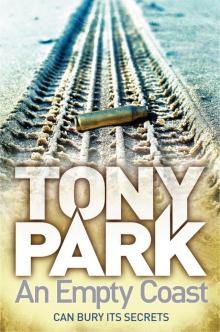 An Empty Coast
An Empty Coast Dark Heart
Dark Heart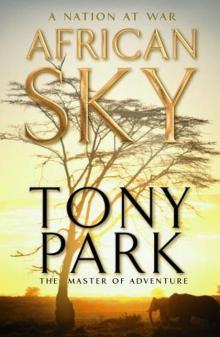 African Sky
African Sky The Delta
The Delta Captive
Captive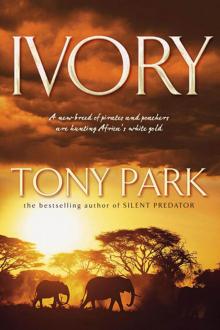 Ivory
Ivory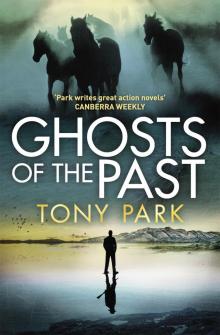 Ghosts of the Past
Ghosts of the Past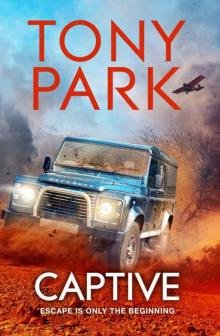 Captive_A High-octane And Gripping African Thriller
Captive_A High-octane And Gripping African Thriller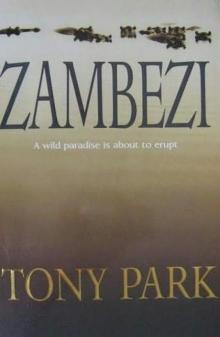 Zambezi
Zambezi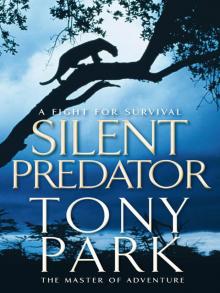 Silent Predator
Silent Predator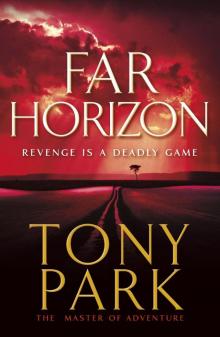 Far Horizon
Far Horizon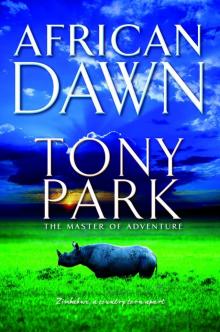 African Dawn
African Dawn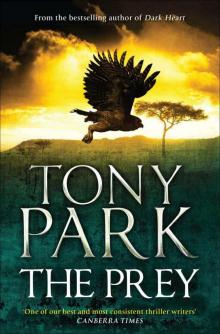 The Prey
The Prey Safari
Safari